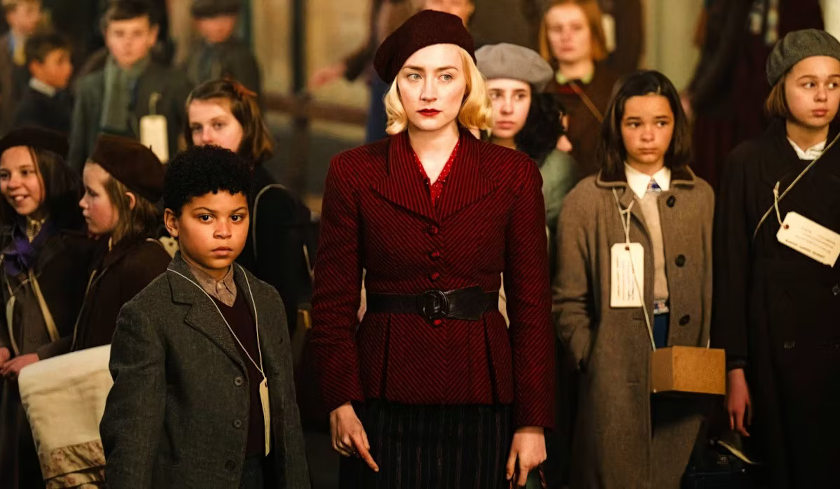Vassilis Kroustallis reviews Steve McQueen's 'Blitz'.
Leave it to Steven McQueen to tell his version of post-Dickensian dystopia in the intimate, discordant, and sometimes too rhythmically relaxed 'Blitz', the story of a black child in WWII London.
The story has been told before (notably by John Boorman's 1987 'Hope and Glory'); yet McQueen has an eye for hyperrealism -and no matter his affinities with ordinary London folks, he never aspires to be a Terence Davies director. So the fluid narrative of 'Blitz' is interspersed with brief (repetitive) glimpses of bombs being thrown, crisp to-the-core cinematography (by Yorick Le Saux), and a soundtrack by Hans Zimmer that mercilessly attests to its presence -like listening to a videogame.
This film review starts from the 'below the line' qualities that dominate the film, its plot, and its actors so much that they put them in a puppet to master position. Still, the conventional story has its surprises. Black London kid George (the newcomer Elliott Heffernan) lives with his single mother and factory worker Rita (Saoirse Ronan) and his grandfather Gerald (Paul Weller) in WWII London, now threatened by the German bombs. The government's very last notice is for all kids to leave the capital -and go to safer country places, entrusted to third people. This is George's intended fate, but he manages to escape from the train he's boarding (after telling his mum that he hates her). And then his Dickensian adventure begins.
McQueen (unsurprisingly, perhaps) follows quite literally the Oliver Twist canon -with the black boy twist- and we feel that his reappropriation is the right one indeed. Every act of prejudice and abuse in the film (among the British, the enemy Germans are conspicuously absent) is registered as truthfully and as potently as could be -with some pain for good measure, as McQueen knows how to evoke (but to a lesser degree than '12 Years A Slave'). At the same time, old-fashioned but important flashbacks show us a society ready for disintegration because of its intolerance. And McQueen knows how to handle dislocation -even if sometimes too visually shy to move from one spot to the next.
Performances and themes are subject to this realist cause, with Ronan being a solid presence, and Heffernan the everlasting wondering (and wandering) kid. McQueen uses (but for a very short time) musician Benjamin Clementine as a guardian angel and part of the hyperrealistic touch of the film - Clementine is mostly a lost opportunity here. 'Blitz' is a film whose episodes (going places) look well-trodden but still assured; with the climax of the flood scene, easily the most angst-ridden scene of the whole 2-hour adventure.
The film keeps its strata-of-society critique real to the last frame, even if it expects its viewers to relive slices of life already experienced before. It is honest, sometimes inspired, and empathetic most of the time -in its own, mildly revisionist way.
Vassilis Kroustallis

